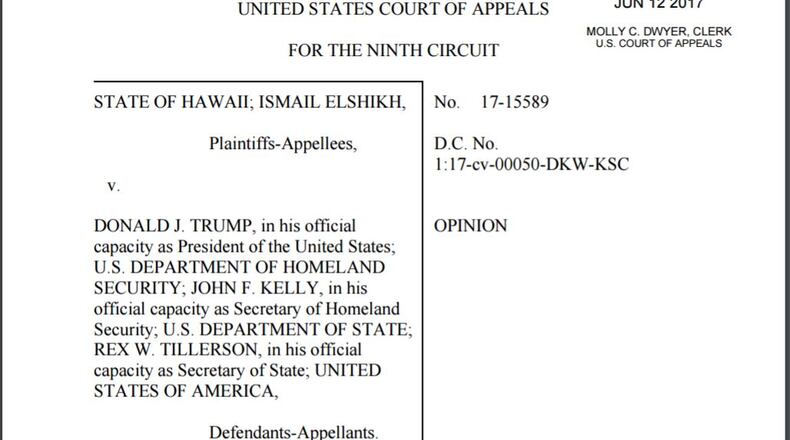In this latest ruling, the Ninth Circuit said the President violated immigration law by not showing how the entry of people from Iran, Libya, Sudan, Somalia, Syria and Yemen would harm American interests.
"Immigration, even for the President, is not a one-person show," the court wrote in a per curiam opinion issued Monday morning Pacific time.
"The President’s authority is subject to certain statutory and constitutional restraints," the decision reads.
"We conclude that the President, in issuing the Executive Order, exceeded the scope
of the authority delegated to him by Congress," the judges stated.
Lawyer Neal Katyal, who argued the case for the state of Hawaii, called the ruling "a complete win."
Today's ruling upheld a decision in March by a federal judge in Hawaii, who put much of the revised Trump travel and refugee order on hold.
The Ninth Circuit decision also cited a recent tweet from President Trump, in which he called his order as a "travel ban" - as the three judge panel used a footnote to refer to comments from White House Press Secretary Sean Spicer, that Mr. Trump's tweets are considered "official" statements.
Asked about today's ruling, Spicer said the Justice Department was reviewing its options.
"We continue to be confident that the President's executive order to protect this country is fully lawful and will ultimately be upheld by the U.S. Supreme Court," Spicer told reporters.
"Any lawyer worth their salt agrees 100 percent the President was within his rights," Spicer added.
About the Author

